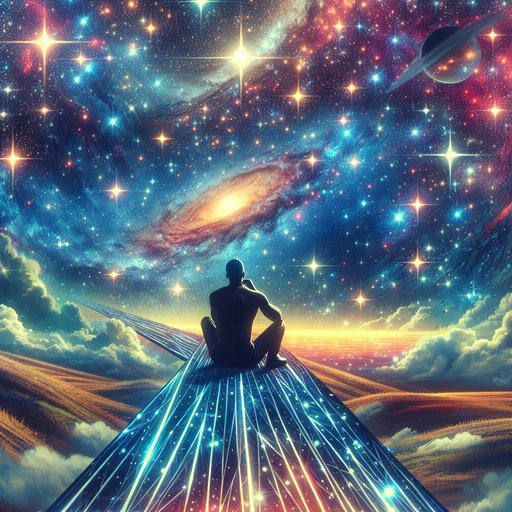 The irrepressible human pursuit for existential meaning has not only fostered philosophical thought but has also shaped societal structures and religious doctrines. The grand question of 'why we exist' has eluded a one-size-fits-all answer, inducing unique interpretations reflecting our collective diversity. Here, we delve into this multi-faceted pursuit for understanding human existence and mortality.
The irrepressible human pursuit for existential meaning has not only fostered philosophical thought but has also shaped societal structures and religious doctrines. The grand question of 'why we exist' has eluded a one-size-fits-all answer, inducing unique interpretations reflecting our collective diversity. Here, we delve into this multi-faceted pursuit for understanding human existence and mortality.
Since antiquity, humans have been straddled with the question of existence. Why are we here? What is our purpose? These existential inquiries have shaped countless philosophical debates, laying the foundation for diverse cultural narratives.
The ancient Greeks, for instance, viewed life as a grandiloquent journey, an odyssey to be navigated with intellectual rigor and courage. They considered happiness, or 'eudaimonia', to be the paramount purpose of human life. In the Far East, Buddhism posits that we're held in the cyclical whirlwind of birth, death, and rebirth - until we attain enlightenment, thereby escaping this cycle. Much of Eastern philosophy imbues existence with intrinsic value rather than end-goal objectives.
Existentialist philosophers such as Sartre and Camus argued from another perspective entirely. They suggested that life has no inherent meaning, and it's up to us to assign purpose to our actions, a concept known as 'absurdism'. With ongoing innovations in science and technology, artificial intelligence nudges us to revisit these questions, questioning what it truly means to be human in a world of thinking machines. The juxtaposition of man and machine has sparked urgent dialogues about identity, mortality, and ethical boundaries.
Despite the quest for understanding human existence and mortality handicapping us throughout history, perhaps the beauty lies not in the answers, but the pursuit. Like a kaleidoscope, life’s meaning shifts with each varying perspective, reflecting the colorful tapestry of our shared experiences. It's not the destination but the journey that counts. Each generation is but a new chapter in the tome of humanity, grappling with the same old questions enveloped in new cloaks of context.
Our existential quest is comparable to navigating the seas; the waves, wind, and current may change, but the intrinsic pleasure lies in the voyage, not the shore.























































